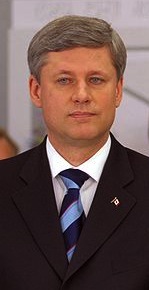I had an astonishing conversation with a Conservative Member of Parliament from Alberta last week.
The MP in question, who shall remain nameless to protect the guilty, was complaining to me about how the current federal election campaign seems to have gone right off the tracks. Thanks (in his opinion) to the news media’s irresponsible fixation on matters of picayune consequence, all anyone wants to talk to him about was that darned Facebook fracas!
He, on the other hand, only wanted to deal with substantive issues, serious policy matters and high-minded discussion of the future of Canada, which is what a federal election campaign really ought to be about. Right?
… After I regained consciousness … OK, that was hyperbole, but, really, people, I hardly knew how to reply.
I mean, who among us wouldn’t agree with this sentiment … coming from anyone but a standard-bearer for Prime Minister Stephen Harper, who has been rightly characterized as the King of the Nasty Attack?
Nasty attack advertisements, the stock in trade of the so-called Conservative Party of Canada, are after all the ultimate way to avoid substantive policy issues to achieve such profoundly undemocratic and unethical goals as suppressing your opponents’ vote, smearing their characters, attacking their family members or mocking their physical appearance.
Typically, this kind of thing tends to happen late in an election campaign, but, as Bob Hepburn of the Toronto Star recently noted, Harper loves to do it all the time.
“It’s like kicking the underdog opponent non-stop,” he observed. “And the more hateful, personal and nasty the ads are, the more Harper seems to delight his hard-core base, and simultaneously turn off the rest of the voters.”
This, of course, is the idea. It is the standard goal of negative advertising of the type pioneered in the United States by Harper’s Maple Tea Party’s Republican antecedents — vicious political strategists like Donald Segretti and Karl Rove with their “assured disdain for Marquis of Queensberry rules of political engagement.”
Generations of Conservative strategists from this country have made pilgrimages to the United States to sit at the feet of these “Mayberry Machiavellis.”
Voters on both sides of the Canada-U.S. border say they don’t like negative political advertising, particularly its most vicious examples, but both also respond to its messages as programmed. So we can expect the use of negative ads to continue in the governing party’s attempts to get those of us who don’t support it not to vote, and those of us who are uncertain to react viscerally to the Liberals and New Democrats, even if our reaction turns out to be based on falsehoods and canards.
So it is a given that my Conservative interlocutor’s party will continue to smear Liberal Leader Michael Ignatieff, including attacks on his parents replete with half-truths about their origins in Russia. These and darker things are certain to follow, especially if the election contest grows tighter.
What is ironic is that in the case of the continuing Facebook fracas, the Conservatives themselves — not the opposition parties and certainly not the media — who have done this to themselves.
What my brief conversation really says is that this particular Member of Parliament — whose chances of being defeated in the May 2 federal election are essentially zero — has nevertheless been hearing from plenty of constituents that they don’t approve of the idea of having goons (or Mounties, or whoever) kick citizens out of election rallies because they happen to have their photo on a Facebook page with the leader of another party.
After all of the ethical issues that rolled off voters like water off the proverbial duck’s back — contempt of Parliament, convicted fraudsters with “escort” girlfriends as close prime ministerial advisers, in-and-out advertising financing, double Parliamentary prorogation, muzzled scientists, the decision to destroy the validity of Canada’s census, Afghan detainees and above all, those nasty attack ads — who would have guessed it would be a kid kicked out of a rally for what she posted on Facebook that would have stuck with the public?
It is interesting, possibly quite significant, that this should be cropping up in Alberta, where there is so often a kind of cognitive dissonance about such matters.
Readers will recall, for example, how Alberta Conservatives were so outraged at 2008 political ads suggesting Premier Ed Stelmach had no plan, that they passed legislation against such free expression. Yet they barely notice attacks on Jean Chrétien’s physical appearance, birds pooping on Stephane Dion or smears of Ignatieff’s parents.
But there it is. Facebook of all things!
And stick it has: You only need to listen to the conversations and jokes at the bank, on public transit, in the Tim Horton’s lineup to know that this one has somehow winkled through, a profound measurement in the minds of Canadians of the character of Stephen Harper and the people around him.
And who knows? It might even make Canadians pay attention to the just-revealed sleazy way the Conservatives funnelled pork through their absurdly expensive G8/G20 bunfest in Toronto last summer.
This post also appears on David Climenhaga’s blog, Alberta Diary.




